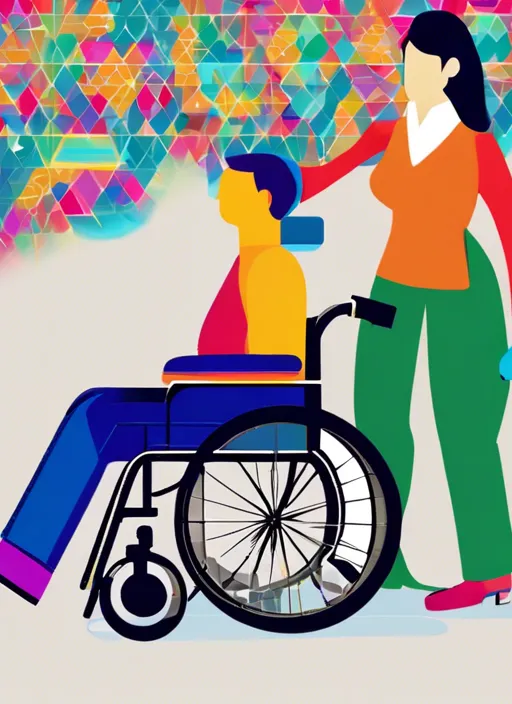
Catalyst for Change: How the 1996 Atlanta Paralympics Sparked IOC Reforms
The 1996 Paralympic Games, held in Atlanta, Georgia, played a significant role in prompting changes by the International Olympic Committee (IOC) regarding how future Paralympic Games would be organized and integrated with the Olympic Games. While the Atlanta Paralympics were successful in many ways, the challenges and criticisms faced by the organizers highlighted the need for a more cohesive approach to hosting both the Olympic and Paralympic Games.
The 1996 Atlanta Paralympics: Key Challenges and Shortcomings
The 1996 Paralympic Games in Atlanta were notable for being the first Paralympics held in the United States since the inception of the modern Paralympic Games in 1960. Despite the significance of this event, it was marred by several organizational challenges:
Lack of Integration with the Olympics: Unlike subsequent Paralympic Games, the Atlanta Paralympics were not integrated into the Olympic planning process. The Olympic and Paralympic organizing committees operated separately, leading to discrepancies in the quality of facilities, accommodations, and overall experience for athletes and spectators. This lack of integration underscored the need for a unified approach to organizing both events.
Funding and Sponsorship Issues: The Atlanta Paralympics faced significant financial difficulties. Unlike the Olympics, which received substantial corporate sponsorship and media attention, the Paralympics struggled to secure funding. This led to cost-cutting measures that affected the quality of the Games. For example, athletes were housed in dormitories with less-than-adequate facilities, and there were complaints about the lack of adequate transportation services for athletes and spectators.
Limited Media Coverage: The media coverage for the Atlanta Paralympics was limited compared to the Olympics, which impacted public awareness and engagement. This lack of visibility highlighted the need for greater efforts to promote the Paralympic Games and ensure they receive the recognition and attention they deserve.
Accessibility Concerns: Despite efforts to make the Games accessible, there were criticisms regarding the level of accessibility in some venues and facilities. These shortcomings emphasized the importance of ensuring that cities hosting the Paralympics are fully prepared to accommodate athletes and visitors with disabilities.
Impact of the Atlanta Paralympics on Future Games
The challenges faced during the Atlanta 1996 Paralympics served as a wake-up call for the International Paralympic Committee (IPC) and the IOC. The experience highlighted the need for a more integrated and consistent approach to hosting the Paralympic Games, leading to several important changes:
Formal Agreement Between IOC and IPC: In response to the issues in Atlanta, the IOC and IPC signed a formal agreement in 2001 that established a binding relationship between the Olympic and Paralympic Games. This agreement stipulated that the Paralympic Games would be held in the same city and venues as the Olympic Games, starting with the 2008 Summer Games in Beijing. This integration ensured that both events would receive equal attention, resources, and organizational efforts.
Unified Bidding Process: The agreement also required that cities bidding to host the Olympic Games include plans for the Paralympic Games as part of their bid. This change guaranteed that the host city would have the infrastructure, funding, and organizational capacity to accommodate both events. The unified bidding process promoted inclusivity and ensured that the Paralympics would benefit from the same level of planning and investment as the Olympics.
Increased Media Coverage and Sponsorship: The changes brought about by the IOC-IPC agreement led to increased media coverage and sponsorship opportunities for the Paralympic Games. By aligning the Paralympics with the Olympics, sponsors and broadcasters were more likely to support both events, leading to improved visibility and financial stability for the Paralympics.
Focus on Accessibility: The experience of the Atlanta Paralympics underscored the importance of accessibility. Subsequent host cities made significant efforts to ensure that venues, transportation, and accommodations were fully accessible to athletes and spectators with disabilities. This focus on accessibility has had a lasting impact, influencing city planning and infrastructure development to be more inclusive.
Conclusion
The 1996 Paralympic Games in Atlanta, Georgia, played a pivotal role in shaping the future of the Paralympic movement. The challenges faced during these Games highlighted the need for a more integrated and unified approach to organizing the Olympic and Paralympic Games. The resulting changes, including the formal agreement between the IOC and IPC and the integration of the bidding process, have had a profound impact on the Paralympic Games. Today, the Paralympics are recognized as a premier sporting event, celebrated for their athletic excellence and for promoting inclusivity and equality in sports and society.
Disability Rights Advocate
3 Keswick A
Deerfield Beach, FL 33442
Private Policy
Terms & Conditions

